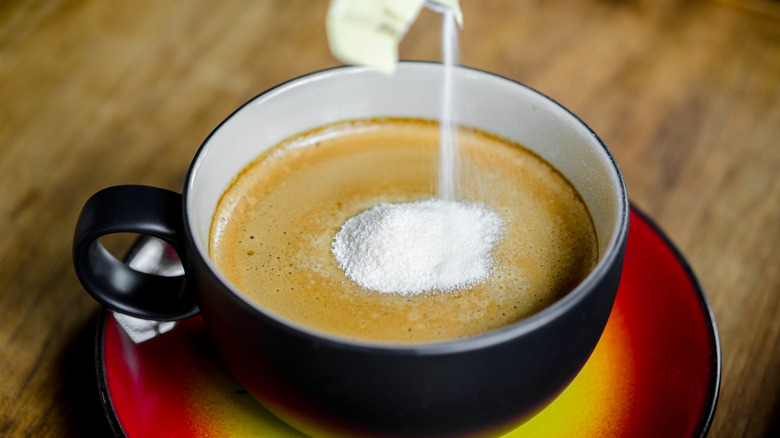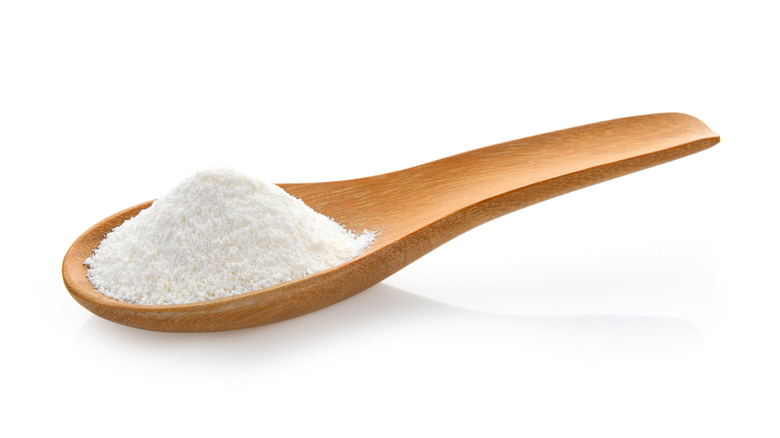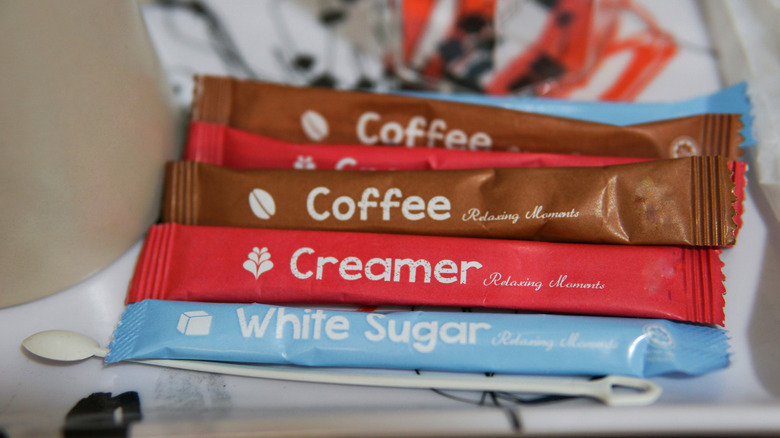Read This Before Using Coffee Creamer Again
Over 60 percent of American adults enjoy at least one cup of coffee per day, according to the National Coffee Association. And who can blame them? Not only does it deliver a much needed boost of energy, increase alertness, and help improve focus, it has also been shown to deliver a number of other health benefits. According to Healthline, drinking coffee has been linked to reduced risk of Alzheimer's disease, type 2 diabetes, liver disease, stroke, and even certain types of cancer. Additional studies have also shown coffee can help burn fat by increasing the body's metabolic rate.
The beverage also contains high amounts of essential nutrients and healthy antioxidants. "Caffeine is the first thing that comes to mind when you think about coffee," Diane Vizthum, a research nutritionist at the Johns Hopkins University School of Medicine, explained to Hopkins Medicine. "But coffee also contains antioxidants and other active substances that may reduce internal inflammation and protect against disease." However, while black coffee on its own is low in calories and might provide some additional health benefits, a cup of coffee can go from healthy to heart-clogging with the addition of just a few extra ingredients.
Non-dairy coffee creamer can contain high amounts of trans fats
Although most of us probably already know that adding lots of sugar or high-calorie creamer to our cup of joe is bad for our waistlines, many people overlook this one sneaky unhealthy ingredient — non-dairy coffee creamer. The dairy-free creamer is a common coffee additive that many people don't realize has less than stellar health effects for us.
According to Med Broadcast, most non-dairy coffee creamers contain hydrogenated oils and trans fats, which have been shown to increase levels of bad LDL cholesterol in the body, while lowering the levels of good HDL cholesterol. This can lead to a higher risk of developing diabetes, heart disease, and stroke. "They might contain trans fat or hydrogenated oil which increases the risk of developing plaque in the heart's arteries," Juan Rivera, MD, a cardiologist and chief medical correspondent for Univision Network, explained to Prevention.
Non-dairy coffee creamer may add lots of extra calories to your cup of coffee
Another thing to keep in mind is that supposedly "non fat" foods can still legally contain up to 1/2 gram of fat while still carrying the "no fat" label, according to Everyday Health. While that may not sound like a particularly large amount of fat, it can add up if you are adding liberal amounts of the creamer to a beverage that you drink every morning. And often, because many people perceive non-dairy creamer to be a healthier option — even though that is not necessarily true — they may be inclined to add even more of the non-dairy creamer to their cup than they would of a regular creamer or milk.
But not only are they high in fats, many non-dairy creamers contain an unexpectedly high amount of calories. In fact, the fat-free versions, rather than being a healthier option, are often the worst calories offenders, with some containing as many as 65 calories in just two tablespoons, which can turn your cup of coffee from a diet-friendly beverage to a sneaky calorie bomb, according to Prevention. They are also more likely to contain high amounts of other unhealthy additives, like sugar, salt, corn syrup, and food colorings.
People with milk allergies may still want to avoid non-dairy coffee creamers
While some people may choose this option over traditional dairy creamers not to reduce calories, but simply because they have a lactose intolerance, some of these so-called "non-dairy" products may not even be completely dairy-free, as Med Broadcast reports. While popular "dairy free" creamers usually do not contain lactose, which is a disaccharide sugar found in milk, many still do contain a milk protein called casein. While it is not technically dairy, casein is derived from dairy products, and is still a common trigger for people that are allergic to milk.
Which means those with food allergies may still find themselves experiencing an uncomfortable reaction after drinking non-dairy creamer if they are also sensitive to milk proteins, as well as lactose. So, the next time you brew yourself a nice, hot cup of coffee, it's probably best to leave the non-dairy coffee creamer on the shelf. And if you don't enjoy the taste of simple black coffee, you might want to reach for regular milk, or opt for other non-dairy alternatives, such as almond or oat milk to flavor your coffee. Your heart and your waistline will thank you for it.



